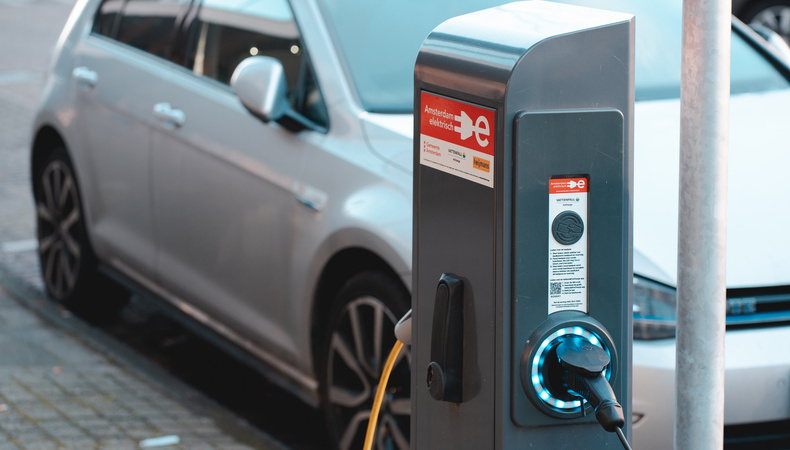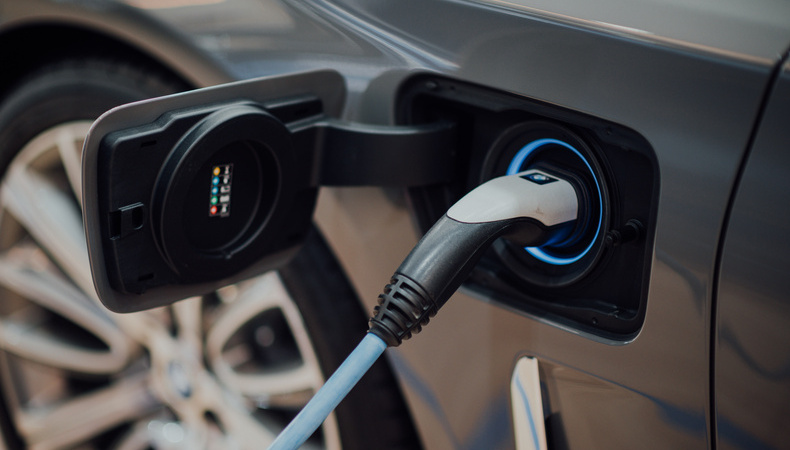Why now may be a good time to buy an electric vehicle
Electric vehicles have been a hot topic for some time. With rising petrol prices and the growing unpopularity of diesels, now may be the right time to buy an electric car for your business. There are 3 types of vehicle to choose from:
- Hybrid Electric Vehicles (HEV) generate their own electricity via regenerative braking systems. These cars use either fossil fuels or rechargeable battery power.
- Plug-In Hybrid Electric Vehicles (PHEV) are powered by two motors - an electric motor and a fuel-injected engine.
- Battery Electric Vehicles (EV) run on rechargeable battery power entirely. They can be charged in your garage at home, or at public EV charger points.

Long battery life and range
One of the first concerns for potential EV buyers is the battery. How many miles can you drive on a single charge? Could you be left stranded? What’s the lifespan of an electric car battery?
The good news is that top-of-the-range EV models can travel around 200 miles before needing to recharge, which is suitable for most uses. Tesla models boast up to 315 miles, an impressive achievement. Obviously, planning your driving journeys will ensure that you get the most out of each ‘tank’.
Most EVs have lithium-based rechargeable batteries with a life expectation of 10+ years and the technology is still evolving. Electric car batteries are designed for a long life, and many are backed by manufacturer guarantees. The BMW i3, for instance, comes with an 8 year / 100,000-mile battery guarantee, while Nissan provides a 5-year (or 60,000 miles) warranty for the Leaf’s battery and electric motor.
Long-term financial savings
Electric cars are a good long-term investment for business owners and employees, reducing ongoing costs, saving tax and lowering your environmental impact. The comparatively high purchase cost is cushioned by the government’s £3,500 Plug-in Grant to encourage drivers to make the switch to electric, reduce emissions and improve air quality. A home charging point will usually be fitted when you buy an electric vehicle.
There are also big savings to be made on running costs. Cars can be plugged into many free EV charging points available around the country or recharged at home. A full ‘tank’ of electricity will cost around 12 per kWh off-peak or 35p per kWh during peak hours. EVs are exempt from road tax and the London Congestion Charge, and there’s no Fuel Benefit to pay if the car is 100% electric.
Tax benefits of electric vehicles
Businesses will be particularly interested in the tax benefits to be had by investing in EVs. A new EV qualifies for the Annual Investment Allowance plus Enhanced Capital Allowances, with the full cost of profits before tax being deductible in the first year. Installing a charging point at your workplace will also qualify for the first-year allowances.
VAT registered businesses can potentially reclaim half of the VAT on lease payments, and 100% if the car is for sole business use. For EV car purchases, you can claim 100% VAT if it is not available for personal use at all.

Employee benefits of electric cars
Ultra-low emission vehicles (CO2 less than 75g/km) can be provided to employees using a salary sacrifice scheme. Taking the money out of gross salary and before NIC results in lower National Insurance payments for both the employer and employee.
BiK is 16% for 2019/20, reducing substantially for 2020/21, in some cases to zero, which can be applied to the EV list price. For hybrid vehicles, Benefit in Kind tax depends on the car’s zero emission mileage. For help with tax calculations, click here.
If the EV is charged at a workplace charging point, there’s no taxable benefit for the employee. They can claim company car mileage payments at 4p per mile for EVs charged at home or at public charging points.
